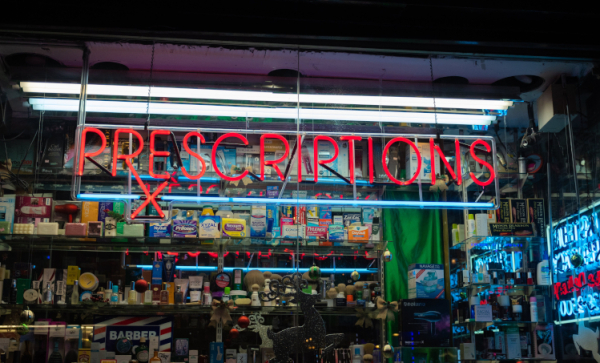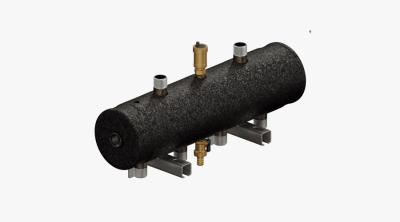The pharmaceutical industry faces various legal issues, from product liability claims arising from adverse effects to patent disputes with competitors. Clear understanding and adept handling of these challenges are essential for companies to ensure patient safety, protect their innovations, and maintain ethical standards.
In this article, we delve into various types of lawsuits that pharmaceutical companies may confront, shedding light on the complex legal landscape they navigate.
Product Liability Lawsuits
Pharmaceutical companies often find themselves entangled in product liability lawsuits, a legal battleground where the safety of medications takes center stage. These lawsuits arise when patients allege harm, adverse effects, or even death from using a pharmaceutical product. Such claims may stem from inadequate testing, insufficient warning labels, or improper instructions.
The pharmaceutical industry's challenge lies in balancing innovation and patient well-being, ensuring rigorous testing, thorough research, and comprehensive risk communication. Navigating product liability lawsuits demands a careful examination of manufacturing processes, clinical trials, and post-market surveillance. This is to safeguard patients and maintain public trust in the industry's commitment to safety.
There are several examples from the past where a pharmaceutical company was held responsible for its defective products. For instance, pharma company Akorn recently agreed to pay $7.9 million for making Medicare pay for invalid drugs that were no longer a part of the coverage.
Another example is that of the Bard PowerPort devices. According to TorHoerman Law, Bard PowerPort devices enable quick access to the vascular system. This helps with carrying medication swiftly into the bloodstream. However, patients using Bard PowerPort devices claim that the catheter can break, leading to several complications.
Some complications from the broken device are migration, fracture, deep vein thrombosis, blood vessel damage, etc. People who have suffered such injuries are filing a Bard PowerPort lawsuit against the manufacturer. If you have used this device and faced any such health problem due to its failure, you can also file a Bard PowerPort lawsuit.
Patent Infringement Lawsuits
Within the pharmaceutical landscape, patent infringement lawsuits emerge as a complex legal arena. These battles revolve around protecting intellectual property, where companies assert exclusive rights to their innovations. Competitors may challenge these rights, alleging that a pharmaceutical company's product infringes upon its patented technology.
Such disputes can escalate into lengthy legal proceedings, impacting drug development timelines and market access. A recent example of such a case was in 2022 when Moderna sued Pfizer for patent infringement of the Covid-19 vaccine.
Striking a delicate balance between innovation and competition is crucial. Pharmaceutical firms must meticulously navigate patent landscapes, seeking ways to protect their discoveries while respecting the intellectual property rights of others. Successfully managing patent infringement lawsuits requires a deep understanding of patent law, innovation, and strategic negotiation.
False Marketing and Advertising Claims
False marketing and advertising claims constitute a legal minefield in the pharmaceutical realm. Companies may face lawsuits when their promotional materials misrepresent their products' benefits, risks, or intended uses. Allegations of downplaying risks, exaggerating efficacy, or marketing off-label uses can lead to serious legal repercussions.
The challenge lies in ensuring marketing messages align with scientific evidence and regulatory guidelines. Striking this balance demands rigorous internal oversight, transparent communication with healthcare professionals, and adherence to strict advertising standards. Pharmaceutical companies must navigate this intricate landscape to build trust, foster transparency, and avoid legal entanglements from misleading marketing practices.
Antitrust and Price-Fixing Allegations
Companies can be accused of anti-competitive practices that stifle market competition and inflate drug prices. These allegations may involve collaboration with competitors, monopolistic behavior, or agreements that hinder generic drug entry. Navigating this complex landscape demands a keen understanding of antitrust laws and regulations.
The pharmaceutical sector is one of the biggest industries worldwide. According to Statista, pharma companies had revenue of $318.86 billion in 2020, which is expected to grow further. As such a vast industry, it is common for pharma companies to try to inflate prices to their advantage to generate more revenue.
To avoid such issues, pharmaceutical firms must balance the pursuit of profitability with ethical considerations and fair market competition. Vigilant compliance with antitrust laws, transparent pricing strategies, and a commitment to accessible healthcare is essential to avoid legal entanglements.
Intellectual Property Disputes
In the dynamic realm of pharmaceuticals, intellectual property disputes emerge as a multifaceted legal challenge. Beyond patents, companies may face conflicts involving copyrights, trade secrets, and proprietary information.
These disputes can arise from disagreements over research data, formulations, or the development of innovative technologies. Successfully navigating intellectual property disputes requires a comprehensive understanding of legal intricacies, creative processes, and safeguarding proprietary assets.
Striking a balance between fostering innovation and respecting the intellectual property rights of others is essential. Pharmaceutical enterprises must adopt strategic approaches, including licensing agreements and negotiated settlements, to protect their inventions and maintain a vibrant atmosphere of creativity.
Whistleblower and Fraud Claims
Whistleblower and fraud claims create a challenging legal terrain in the pharmaceutical landscape. Individuals connected to a company might expose fraudulent activities, such as Medicare/Medicaid fraud, off-label marketing, or kickbacks.
A recent report from CNBC shows that the annual Medicare and Medicaid frauds alone can hover around $100 billion annually or maybe higher. Such claims can trigger extensive investigations, legal proceedings, and substantial penalties.
Negotiating this intricate landscape necessitates stringent adherence to regulations, transparent business practices, and ethical conduct. Pharmaceutical companies must establish robust internal compliance programs, foster a culture of integrity, and promptly address potential issues to mitigate such risks.
Successfully managing these claims is essential for legal compliance and upholding the industry's reputation and commitment to patient welfare.
Environmental and Regulatory Lawsuits
Environmental and regulatory lawsuits emerge as a significant legal challenge within the pharmaceutical sector with broader implications. Companies can face litigation over violations of environmental regulations related to manufacturing processes, waste disposal, or emissions.
Regulatory non-compliance in clinical trials, labeling, or marketing practices can also lead to legal disputes. Navigating these complexities demands a careful balance between business operations and environmental stewardship.
Ensuring adherence to stringent regulations, proactive environmental management, and transparent communication with regulatory bodies are imperative. By upholding responsible practices, pharmaceutical firms avoid legal entanglements and contribute to sustainable, ethical industry growth while safeguarding public health and the environment.
Conclusion
Legal challenges are integral to the intricate tapestry of progress and responsibility in the ever-evolving pharmaceutical industry. The array of lawsuits that pharmaceutical companies may face underscores the industry's pivotal role in healthcare, innovation, and patient well-being. From product liability to antitrust issues, these legal battles reflect the complex interplay of science, commerce, and ethics.
Successfully navigating these legal minefields requires a delicate balance. It demands a steadfast commitment to rigorous testing, transparent communication, and ethical marketing practices. The pharmaceutical sector's ability to innovate while upholding regulatory standards is a cornerstone in building public trust and patient safety.








